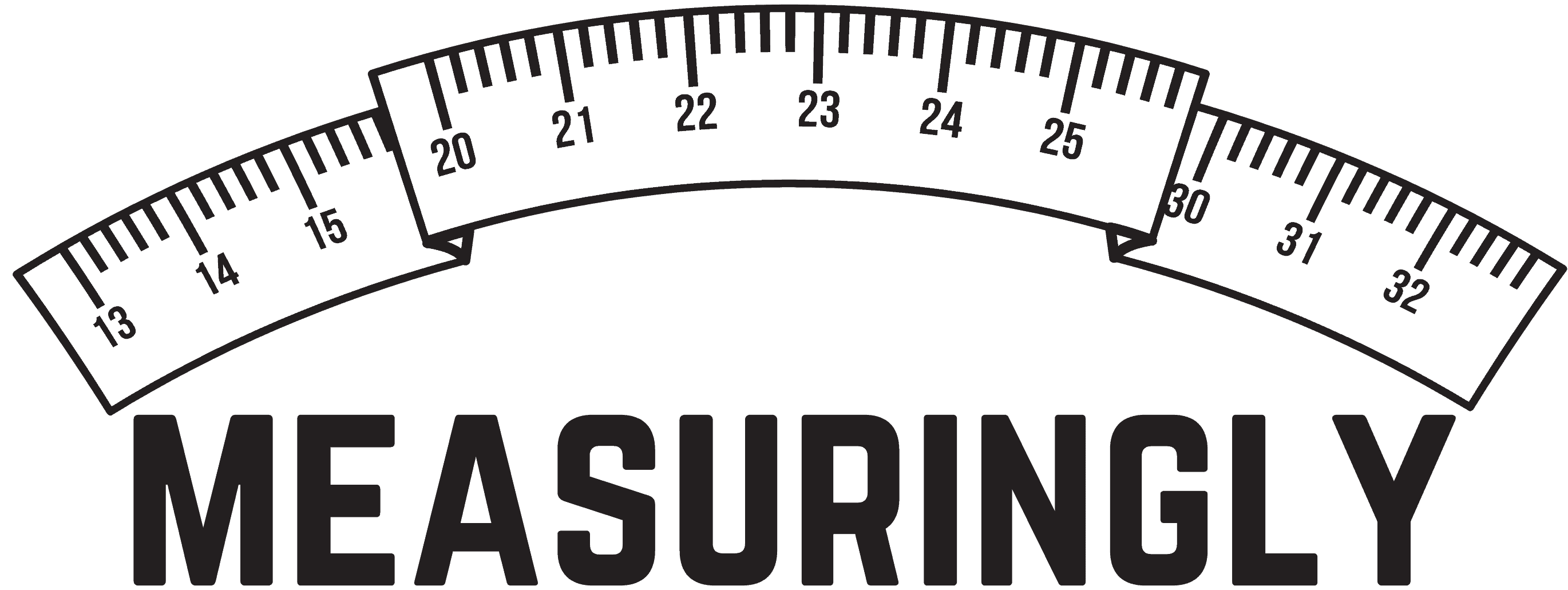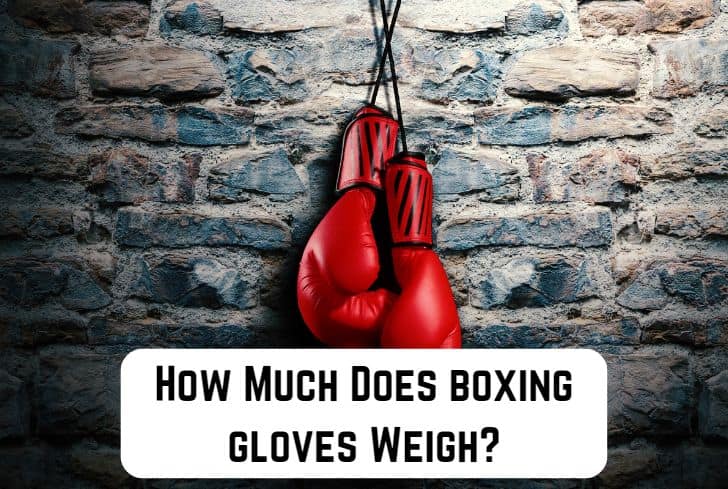Boxing is a physically demanding sport requiring the right equipment to ensure safety and effective training. One essential piece of equipment is boxing gloves – but with so many variations available, choosing the appropriate size and weight can be challenging. This article will help you understand and determine the weight of boxing gloves that best suits your needs.
The weight of boxing gloves depends on multiple factors, including your weight class, intended use (training, sparring, or competition), and personal preference.
Generally, heavier gloves offer increased padding and protection, whereas lighter gloves allow for quicker punches and improved agility. As you read further, we will explore what different glove weights are typically used for and how to choose the right size based on your situation.
The standard boxing glove weights are 12, 14, and 16 ounces. For instance, 10 oz gloves are used by amateur boxers who fight at 152 lbs or under, and 12oz gloves are worn by those who weigh more than 152 lbs.
Measuringly.com
Understanding Boxing Glove Weights
Glove Weight and Size
When you’re choosing boxing gloves, it’s essential to understand that their sizes are actually measured by weight, using ounces. The standard boxing glove weights are 12, 14, and 16 ounces. For example, when you see a pair of gloves labeled “16oz,” it means each glove weighs close to 16 ounces. This weight indicates the amount of padding between your hand and your opponent or the punching bag.
In amateur boxing, the boxing glove weight depends on the fighter’s weight. For instance, 10oz gloves are used by amateur boxers who fight at 152 lbs or under, and 12oz gloves are worn by those who weigh more than 152 lbs.
Purpose of Various Weights
Different glove weights accommodate different purposes during training, sparring, or professional competitions.
Training Gloves
Typically, training gloves come in 12oz, 14oz, and 16oz weights. These gloves are ideal for working out on a heavy bag or mitts. Heavier training gloves provide more protection to your hands and wrists.
Sparring Gloves
When sparring, you’ll usually choose gloves with more padding to ensure both you and your training partner’s safety. Depending on your weight class and preference, sparring gloves range from 16oz to 18oz for adults.
Competition Gloves
In official competitions, the glove weight is determined by the weight class of the fighters. For instance, all fighters in elite competitions use 10 oz gloves for Light Flyweight to Light Welterweight fights, while Welterweight to Super Heavyweight competitions uses 12 oz gloves.
To sum up, understanding boxing glove weights and their purpose will help you decide when choosing the right gloves for your training, sparring, or competition needs.
Types of Boxing Gloves
Boxing gloves come in different weights and styles to meet specific training requirements. This section will look at three common types of boxing gloves: Bag Gloves, Sparring Gloves, and Competition Gloves.
Bag Gloves
Bag gloves are designed for use on heavy bags, speed bags, and other punching equipment. They typically weigh between 6 and 10 ounces and offer less padding compared to other gloves.
This is because their primary purpose is to protect your hands and wrists from injuries during bag work. When choosing bag gloves, consider your weight, strength, and how much protection you need for your hands.
Features of Bag Gloves
- Lightweight (6 to 10 ounces)
- Less padding than other gloves
- Designed for use on punching bags
Sparring Gloves
Sparring gloves offer more padding and protection, typically weighing 14 and 16 ounces. They are meant to ensure the safety of both you and your sparring partner during practice sessions. These gloves provide a balance between protection, weight, and striking capability, making them a popular choice among amateur and professional boxers.
Features of Sparring Gloves
- Heavier (14 to 16 ounces)
- More padding for increased protection
- Suitable for practice sessions with sparring partners
Competition Gloves
Competition gloves are used during official boxing matches and are regulated by weight classes. In professional fights, competitors up to welterweight use 8-ounce gloves, while higher weight classes require 10-ounce gloves. For amateur competitions, 10 to 12-ounce gloves are commonly used across various weight classes, except for the Master’s division, which uses 16-ounce gloves.
Features of Competition Gloves
- Regulated by weight classes
- Designed for use in official matches
- Vary in weight (8 to 16 ounces) depending on competition rules

Factors Influencing Boxing Glove Weight
When choosing the right boxing gloves, there are several factors that can influence the weight of the gloves. In this section, we will discuss three main factors: the level of practice, the boxer’s weight, and the type of training.
Level of Practice
The level of practice can play a significant role in determining the weight of boxing gloves.
- Amateur boxing: In amateur boxing, glove weights depend on fighter’s weight. Boxers weighing 152lbs or under use 10oz gloves, while those over 152lbs wear 12oz gloves.
- Professional boxing: Professional gloves typically weigh between 10-12 ounces. The weight can vary depending on the manufacturer and the specific regulations of a given competition.
- Masters Boxing: Participants in Masters Boxing usually use 14oz gloves regardless of their weight.
Boxer’s Weight
A boxer’s weight can also influence the appropriate glove weight. As mentioned earlier, amateur boxers under 152 lbs use 10oz gloves, while those above 152 lbs opt for 12oz gloves. For general training purposes, it’s recommended that:
- Boxers weighing between 120-150lbs use 14oz gloves.
- Heavier boxers might prefer 16oz gloves for additional padding and protection.
Type of Training
The type of training you engage in also affects the weight of the boxing gloves.
- Sparring: Sparring typically requires gloves with more padding and weight for protection. Boxers of average weight and height usually choose 14oz gloves for sparring.
- Heavy bag training: For training with heavy equipment, like heavy bags or pads, boxers weighing 120-150lbs are recommended to use 14oz gloves.
By considering these factors, you can make an informed decision about the appropriate boxing glove weight for your needs, ensuring both comfort and safety during your training sessions.
Choosing the Right Weight for Your Gloves
Safety Considerations
When selecting boxing gloves, it’s essential to prioritize your safety. Gloves come in various weights, typically ranging from 10 to 20 ounces. The appropriate glove weight for you will be influenced by your training purpose, body weight, and experience level to minimize the risk of injury. For example, men weighing over 150 pounds should use 12 oz gloves for all training and at least 16 oz for sparring.
Comfort and Fit
Your comfort is crucial when choosing the right glove weight. Always try on gloves to check their fit before purchasing. Here are some basic sizing guidelines based on your weight class:
- Under 100 lbs (including children): 6-8 oz boxing gloves
- 100-125 lbs: 10 oz boxing gloves
- 125-150 lbs: 12 oz boxing gloves
- 150-175 lbs: 14 oz boxing gloves
The above guidelines are helpful, but it’s essential to remember that your gloves’ actual fit will likely vary by brand and design. Wrist support, snugness around your knuckles, and finger compartment sizes are all factors to consider when assessing glove fit.
Remember that different glove types will have distinct padding distribution and construction. For instance, bag gloves may have more padding on the knuckles, while sparring gloves require equal padding throughout to protect you and your sparring partner.
Overall, be proactive in your search for the perfect glove weight and fit, and don’t hesitate to ask for expert advice or seek recommendations from fellow boxers. Your safety, comfort, and training effectiveness depend on it.
Frequently Asked Questions
What are the common boxing glove weights?
The typical boxing glove weights are 10, 12, 14, 16, and 18 ounces. These weights allow you to progress from focus mitts to heavy bag exercises to sparring. Remember that boxing glove weight is measured in ounces, which means each separate glove weighs a certain number of ounces. For example, a 12-ounce pair of gloves means each glove weighs 12 ounces.
How do I choose the right boxing glove weight?
The weight of the boxing gloves you choose depends on your own body weight and the type of training you plan to do. Here’s a basic guideline based on your weight:
Under 100 lbs: 6-8 oz boxing gloves
100-125 lbs: 10 oz boxing gloves
125-150 lbs: 12 oz boxing gloves
150-175 lbs: 14 oz boxing gloves
These recommendations are not strict rules but serve as a useful starting point when selecting boxing gloves.
What about amateur boxing glove weight requirements?
In amateur boxing, the boxing glove weight depends on the weight class of the fighters. Fighters who weigh 152 lbs or under wear 10 oz gloves, while those who weigh more than 152 lbs wear 12 oz gloves. For masters boxing, 14 oz gloves are usually worn.
When should I use heavier boxing gloves?
You might prefer using heavier gloves, such as 18 or 20 ounces, if you are a larger individual (generally weighing more than 150 pounds) or if you prefer gloves with more padding.
Remember, these are just general guidelines to help you make an informed decision when choosing boxing gloves. Different brands and materials might also impact your choice, so be sure to try on various gloves and consult with experienced boxers or trainers to find the perfect match for you.







